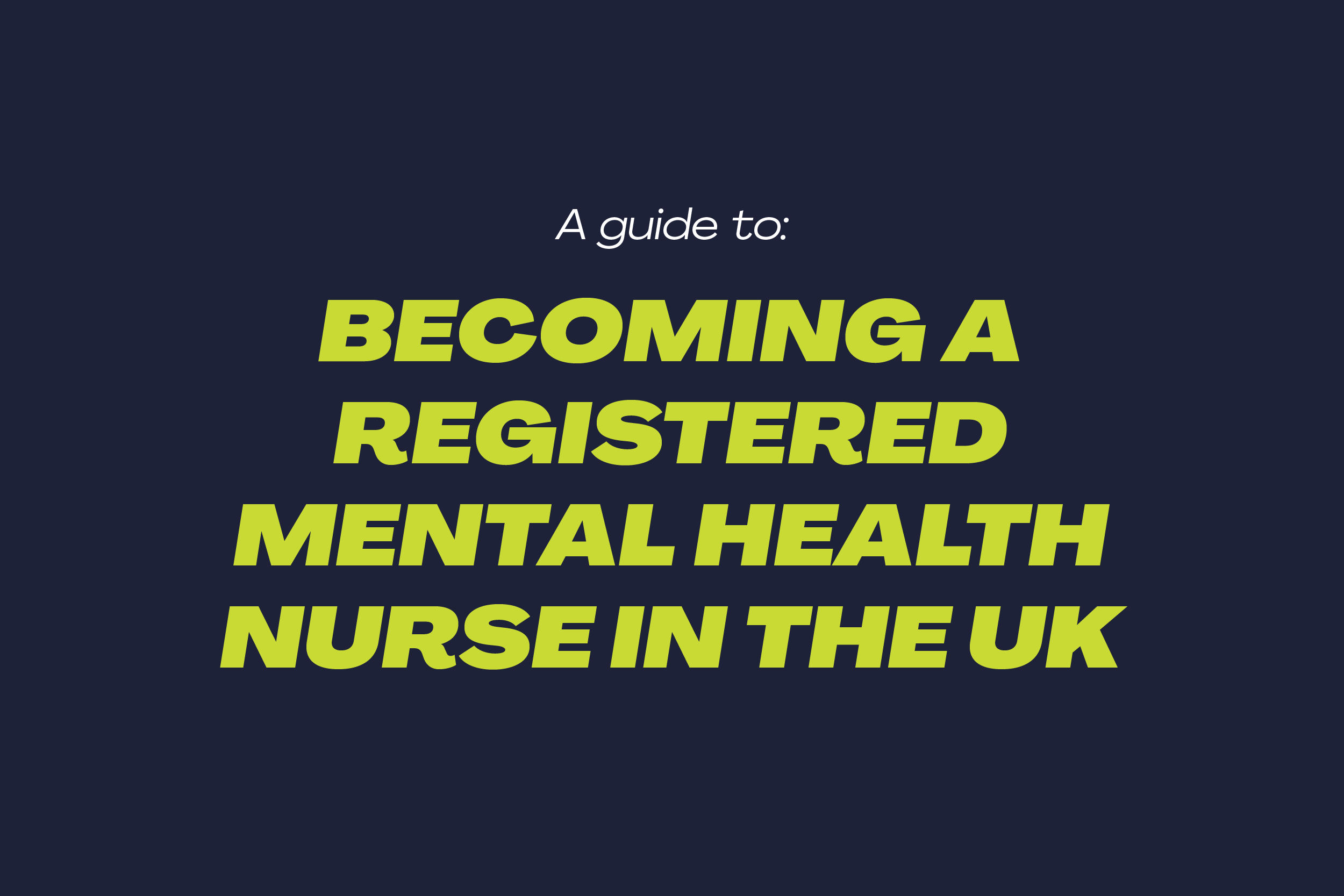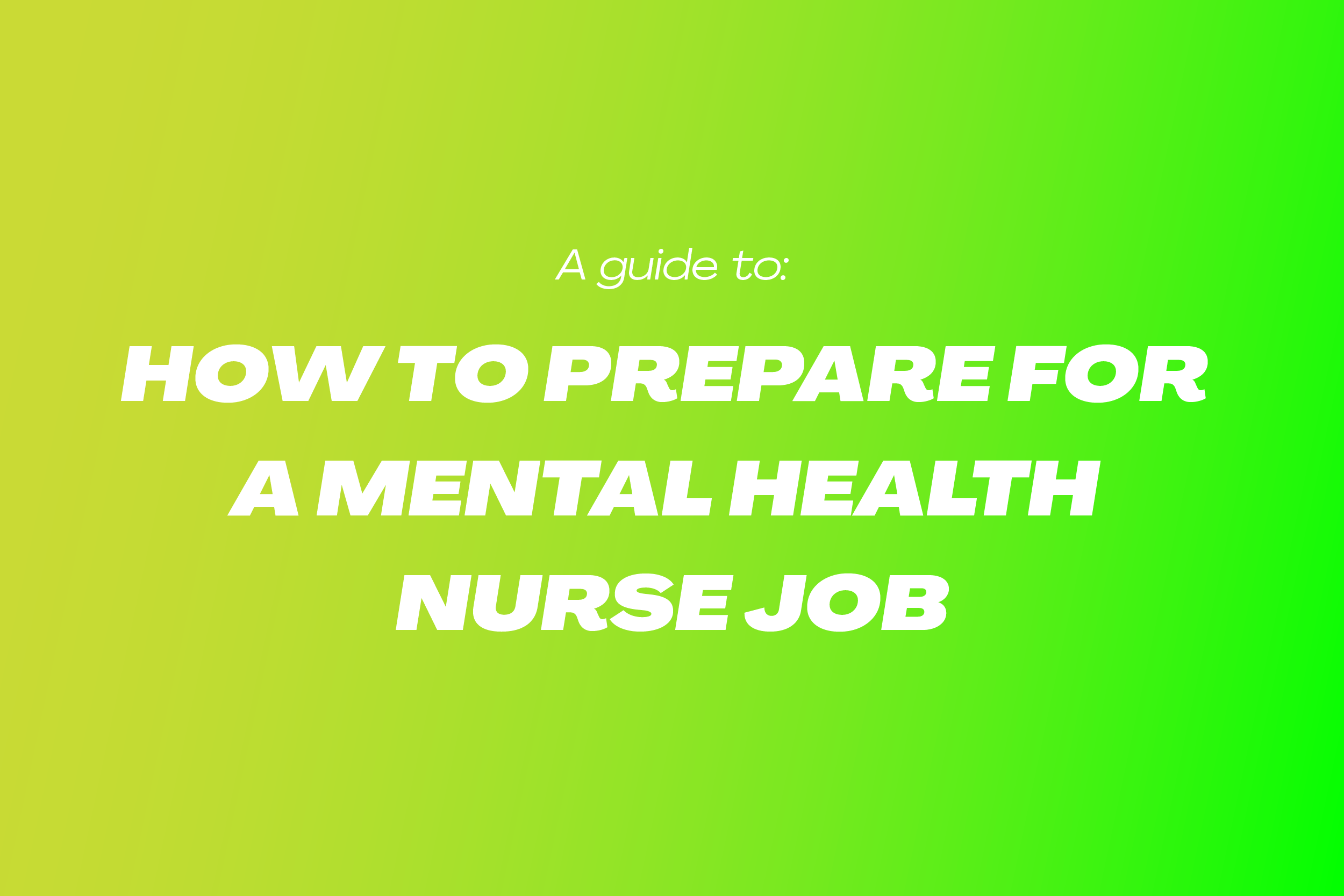Mental health nursing is one of the most essential and demanding roles in the UK healthcare system. With mental health conditions on the rise and staffing shortages across the NHS and private sector, the demand for skilled professionals is only growing. Whether you're newly qualified, experienced, or considering a change in direction, this guide breaks down what mental health nursing involves, how to get started, and where it can take you.
Article Breakdown
What Mental Health Nurses Do
What Makes a Good Mental Health Nurse?
Qualifications and Entry Routes
Where You Can Work
Why Mental Health Nursing Matters
Career Progression
Start Your Career With Your World Nursing
What Mental Health Nurses Do
Mental health nurses help people with many mental health issues. These include depression, schizophrenia, eating disorders, PTSD, and personality disorders. They work in inpatient hospitals, community teams, secure units, A&E, schools, and even in people’s homes.
Their role includes giving medication, managing risks, coordinating care plans, supporting families, and helping people through tough times. According to the NHS, mental health nurses are central to both immediate treatment and long-term recovery.
“People think mental health nursing is just about listening, but it’s about structure, clinical decision-making, and working under pressure,” says Oliver Putman, Lead Executive at Your World Nursing. “You need a clear head, especially when things escalate.”
What Makes a Good Mental Health Nurse?
While clinical skills are essential, effective mental health nursing relies heavily on communication, trust, and consistency. You need to be calm in a crisis, aware of your environment, and able to read between the lines. Every situation is different, and often unpredictable.
“You’re supporting people who might not trust the system, or who are in distress and don’t want to talk,” Oliver explains. “That’s where your interpersonal skills matter. You’re not just following a protocol, you’re building rapport, assessing risk, and making quick judgments.”
The best mental health nurses are clear, dependable, and able to hold boundaries while staying compassionate. Demanding work exists, but for many, that challenge is exactly what makes it worthwhile.
Qualifications and Entry Routes
To become a Registered Mental Health Nurse (RMN) in the UK, you need a degree in mental health nursing. This degree must be approved by the Nursing and Midwifery Council (NMC). Most nurses enter through a three-year BSc program, though some follow postgraduate or apprenticeship routes.
Where You Can Work
Mental health nurses can work in NHS hospitals, community mental health teams, CAMHS (Child and Adolescent Mental Health Services), crisis teams, prisons, secure forensic settings, private clinics, and mental health charities. Many roles now involve hybrid working between clinic and community, especially post-COVID.
“We’re seeing growing demand in community services, especially CAMHS and crisis support,” says Oliver. “The need for experienced RMNs in these teams is huge, and the work, especially locum work, is far more varied than many realise.”
Whether you want to specialise or keep things broad, the flexibility of mental health nursing makes it a strong long-term career option.
Why Mental Health Nursing Matters
Mental health nurses are a key part of how the UK addresses the mental health crisis. The Mental Health Foundation notes that over one in six people in England report experiencing a common mental health problem each week. Nurses aren’t just supporting individuals, they’re holding up a vital part of the healthcare system.
This work is among the most essential, especially as services face increasing demand and complexity. Mental health nurses provide structure, care, and continuity, often in situations where little else is stable.
Career Progression
As you gain experience, you can move into roles such as Clinical Lead, Nurse Prescriber, Advanced Nurse Practitioner (ANP), or service management. Some nurses choose to specialise in areas like trauma, addiction, eating disorders, or neurodiversity. Others move into education, policy, or research.
Professional development, through short courses or postgraduate qualifications, can help you take these next steps. Your World Nursing also provides access to work that builds specialist experience and leadership potential.
“A lot of the nurses we place want more than just a role, they want to move forward, whether that’s into leadership or a specific clinical area,” advises Oliver. “We make sure the jobs we offer support that."
For many nurses, working as a locum provides a flexible route to career growth. Locum roles let you work in different services and trusts. You can experience various clinical environments and quickly build a wider skillset. It’s also a way to find work-life balance, try new areas of practice, or earn good rates without sticking to one employer.
“Experienced RMNs have used locum work to improve their CV, fill skill gaps, or move into a new specialty,” Oliver adds. “It’s not just a stop-gap, it can be a strategic move.”
Start Your Career With Your World Nursing
At Your World Nursing, we help find jobs for mental health nurses. We work with NHS trusts, private hospitals, community teams, and specialist services across the UK. Whether you're looking for permanent roles or locum shifts, we work with you to find the right fit, professionally and personally.
Visit our Mental Health Nursing Jobs page to view current vacancies or speak to our mental health team for tailored advice.









